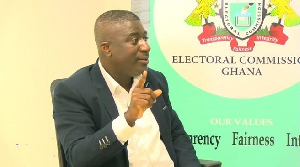The deputy ranking member of the Select Committee on Education, Dr. Clement Apaak said students in tertiary education cannot afford the 15 percent increment in fees in the public Universities.
His comments come on the back of Parliament approving a 15% maximum increment in university fees for the new academic year.
However, the National Union of Ghana Students (NUGS) has bemoaned reports of some institutions charging 30 percent.
NUGS says the move is unacceptable considering the prevailing economic hardship in the country.
Throwing his support for the students, the lawmaker stated the challenges have to do with the GETFUND capping.
“Students cannot afford a 15% fee increase in this shambolic economy, universities are struggling to function due to inadequate funding so want to charge students more than 15%. The de-capping of GETFUND is the solution, universities will get support, and the government must do the needful,” Dr. Apaak stated.
Meanwhile, the University Students Association of Ghana (USAG) has also opposed the increase in the fees of public universities for the 2022/2023 academic year.
In a statement, the USAG stated that “the recent astronomical hikes in school fees of public universities in the country, will make access to education become increasingly difficult.
“The procedure for approval of Public University fees is very clear, and this approval does not stop at Management or at University Councils. Our universities are supposed to send their proposed fees to Parliament through the Ghana Tertiary Education Commission and the Ministry of Finance. Subject to the passing of the recent Fees and Charges Act, 2022, the final approving authority is not the university management but Parliament.”
Business News of Sunday, 25 December 2022
Source: starrfmonline.com

















